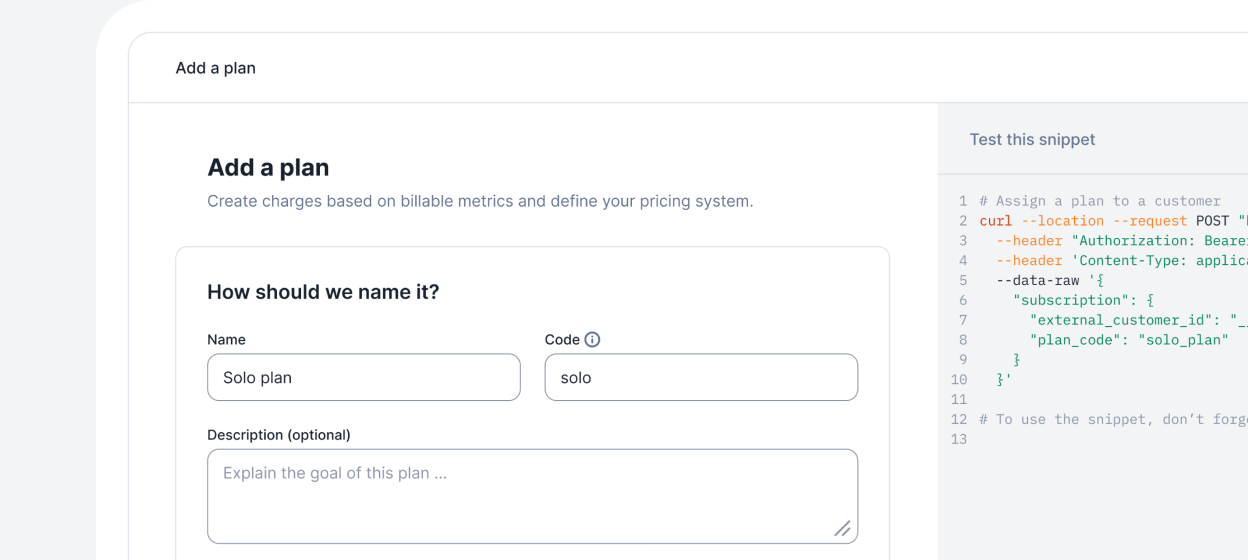Comparison: Chargebee vs Recurly for Billing

What is Chargebee?
Chargebee, founded in 2010, is a recurring billing and subscription management platform that helps businesses automate and streamline their subscription operations. In 2021 and 2022, Chargebee acquired several new products (RevRec, Receivables, Retention) and evolved into a Revenue Growth Management (RGM) platform for subscription businesses. It now provides two services, including Billing and Retention.
.avif)
What is Recurly?
Recurly is a subscription management and recurring billing platform that helps businesses of all sizes create, manage, and grow their subscription businesses. It is a cloud-based solution that offers a wide range of features, including subscription management, recurring billing, payments, reporting and analytics.

Chargebee vs. Recurly: Feature comparison
Subscription billing
Chargebee and Recurly provide flexible subscription billing options, including fixed fees, tiered pricing, volume-based billing, stairstep pricing, along with dunning management and refund support. Businesses can set up recurring billing cycles, manage billing exceptions, and handle proration and discounts all within their platform.
Usage-based billing
Chargebee offers limited support for usage-based billing. It only allows a maximum of 5,000 usage records for a subscription over its lifetime (see here). This means that you will not be able to send more than 5,000 usage records to bill a customer. Besides, there is no idempotency key for usage events. This can lead to the same event being recorded multiple times, resulting in inaccurate unit charges.
Recurly offers support for straightforward usage-based pricing (e.g., $20 per user). This allows businesses to implement different pricing strategies, including a pay-as-you-go approach or setting a flat fee and overage charges. However, it may not be flexible enough for businesses that need support for complex usage-based pricing models. For instance, Recurly does not natively support PayPal's per-transaction pricing, which includes a percentage and fixed fee, plus minimum and maximum limits.
Aggregation & Metering
Chargebee does not interpret events into proper units to be charged. You will need to build a pre-aggregation billing system on top of Chargebee that sends the final aggregation result to be billed. This engine must be maintained in addition to the Chargebee integration.
Recurly provides two basic aggregation types, namely Cumulative (Sum) and Last Recorded for its usage-based add-ons. However, it may not cover all usage-based billing scenarios and may also require customers to perform additional data aggregation and metering before sending data to Recurly.
Invoicing
Chargebee offers advanced features for invoicing operations including Invoice customization, Custom fields and Credit notes.
Recurly also supports Invoice customization and Credit notes. However, it does not include Custom Fields in Invoices.
Taxation
Chargebee includes a built-in taxation feature that allows you to calculate and apply taxes to your invoices. The taxation feature supports a wide range of tax types, encompassing VAT (including EU VAT), GST, and sales tax.
Recurly enables tax calculation through Avalara’s system. This can help you with tax compliance but also lead to additional costs.
Reporting and Analysis
Chargebee's reporting is more focused on financial data, with detailed breakdowns of revenue, taxes, and transaction histories. It also includes a built-in analytics module for exploring customer behavior and revenue trends.
Recurly's reporting places greater emphasis on resource usage and customer behavior, offering insights into how customers interact with products or services.
Chargebee vs. Recurly: Pricing
Chargebee offers two services including Billing and Retention with separate fees.
For billing, Chargebee offers:
- Starter plan: No flat fee, with the first $225k of cumulative billing; 0.75% on billing thereafter. This plan includes basic billing features.
- Performance plan: $599 monthly flat fee for up to $100k monthly billing; 0.75% on billing thereafter. This plan offers access to some advanced features.
- Enterprise plan: Custom pricing.
Recurly's Core Plan begins with a monthly platform fee of $249 and includes a 0.9% fee based on revenue. In 2023, they have a promotional offer for this plan; details here. For Professional and Elite Plans, Recurly offers custom pricing.
Which solution is the best for you?
Chargebee and Recurly cater to subscription and recurring billing, and offer comparable subscription billing features. Both platforms empower businesses to establish recurring billing cycles, manage exceptions, and handle invoicing operations efficiently. However, these softwares may not be flexible enough for handling complex pricing models and usage-based billing. In such instances, it's worth exploring alternatives that better accommodate intricate billing scenarios.
Lago, the Chargebee vs Recurly alternative
Lago is an open-source metering and usage-based billing solution. It offers a self-hosted and cloud-based, scalable, and modular architecture to manage subscriptions, usage-based billing and all the nuances in between. It's the go-to choice for companies that require a powerful tool to handle complex billing scenarios, allowing you to build a comprehensive billing system from scratch with ease.
For further information and detailed comparisons:
👉 Chargebee vs. Lago comparison: here
👉 Recurly vs. Lago comparison: here
TL;DR: Table of comparison Chargebee vs. Recurly
- Performance: $599/month, includes $100k monthly billing, then 0.75% on revenue
- Enterprise: Custom pricing
- Professional & Elite Plans: custom pricing
Focus on building, not billing
Whether you choose premium or host the open-source version, you'll never worry about billing again.
Lago Premium
The optimal solution for teams with control and flexibility.

Lago Open Source
The optimal solution for small projects.

